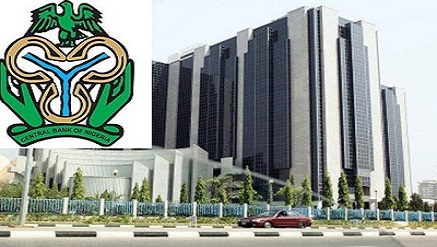E-Financial
CBN Plans Review of e-Payment Guidelines

Alhaji Suleiman Barau, deputy Governor, Operations Directorate, Central Bank of Nigeria (CBN), has said the apex bank may soon commence comprehensive review of electronic payment (e-payment) guidelines in the country, the
Barau, who disclosed this in a keynote address titled: “Payments System Vision 2020: Creating Enabling Environment Through Regulatory Framework”, at the 2014 yearly retreat of the Committee of e-Banking Industry Heads (CeBIH), in Abuja, said that the review of guidelines is to build on the success recorded in the promotion of e-payment in the country.
The apex bank chief, who was represented by ‘Dipo Fatoku, dDirector, Banking and Payment System Department, , noted that CBN is poised to stimulate acceptance and usage of the payments system.
“Therefore, the Payments System Vision 2020 outlined a number of initiatives to catalyse the adoption of electronic payments system in certain sectors including, agriculture, transportation, hotels and entertainment, education, health, smart cities, bill payment and government flows.
“The bank has committed to reviewing the following regulations- Mobile Payments Regulatory Framework, the exposure draft of which was communicated to you about two weeks ago; guidelines on stored value/prepaid cards which was issued during the course of the year as Guidelines for Card Issuance and Usage in Nigeria; and Guidelines for Point-of-Sales (PoS) Card Acceptance Services.
“The Revised Nigeria Bankers Clearing House Rules; Guidelines for Cheque Truncation; Direct Debit Rules; Guidelines on Transaction Switching Services; Operational Rules and Regulations of the Nigeria Central Switch; and Guidelines on ATM Operations.
“We issued earlier in the year, the revised Guidelines on the Electronic Payments of Salaries, Pensions, Suppliers and Taxes in Nigeria; Guidelines on International Remittances Services as well as the Review of the Operations of the NIP.”
Tunde Kuponiyi, chairman of CeBIH and head, Cards/e-Banking, Ecobank Nigeria, said that though the industry has recorded tremendous progress in terms of electronic payment system, the benefits are yet to reach every segment of the society.
“The payment system today is vibrant, robust and technologically superior with multiple payment instruments, multiple access points and delivery channels to choose from. However, the benefit of modern payment system is yet to fully percolate to all segments of the society.
“As a result, a substantial portion of the population is still outside the realm of the formal and modern payment system. Thus the stage is set for all of us especially the banks and the Central Bank of Nigeria along with other stakeholders in the industry to collaborate with each other in a co-operative effort to expand the reach of banking sector and modern payment systems by making all efforts towards the realisation of the PSV 2020 20,” he said.
E-Financial
NDIC Begins Final Settlements to Creditors of Liquidated Premier Bank

Nigeria Deposit Insurance Corporation (NDIC) has begun the final phase of liquidation for the defunct Premier Commercial Bank, initiating the payment of liquidation dividends to verified creditors, nearly 25 years after the bank’s closure.

Premier Commercial Bank had its operating license revoked by the Central Bank of Nigeria (CBN) on December 20, 2000, following findings of financial instability and regulatory non-compliance.
Since then, the NDIC has overseen the bank’s liquidation process under a winding-up order from the Federal High Court, which designated the corporation as the official liquidator.
In a public announcement, the NDIC invited all eligible creditors to visit any of its zonal offices between June 2 and June 27, 2025, to verify and claim their entitlements.
This move marks a critical milestone in the final settlement of claims related to the bank’s collapse.
To facilitate the verification process, creditors are required to present proof of deposit or shareholding, such as a passbook, chequebook, term deposit certificate, or bank statement.
Additionally, valid identification documents must be submitted, including a driver’s license, international passport, national identity card, NIN slip/card, voter’s card, or a formal identification letter from a traditional ruler or local government chairman.
The NDIC assured the public that the ongoing settlement is part of a broader effort to bring closure to longstanding claims resulting from Premier Commercial Bank’s liquidation. The process, according to the corporation, has been designed to ensure efficient disbursement to all verified stakeholders.
Premier Commercial Bank is one of 53 deposit money banks whose licenses were revoked by the CBN between 1994 and 2018 due to various violations and signs of financial distress.
These closures were followed by legal procedures appointing the NDIC to manage asset recoveries and creditor settlements.
By initiating this final phase of payment, the NDIC is reaffirming its commitment to financial system stability and depositor protection while calling on all affected individuals and institutions to complete verification processes promptly to receive their due compensation.
E-Financial
SEC Directs Companies to Honour Unclaimed Dividend Requests

Securities and Exchange Commission (SEC) has directed all public companies and Registrars to stop treating unclaimed dividends older than 12 years as “statute-barred”, especially those dating from before the enactment of the Finance Act 2020.

The directive reaffirms the provisions of Section 60 of the Finance Act, which mandates that dividends unclaimed for over six years be transferred to the Unclaimed Funds Trust Fund (UFTF), where they remain accessible to shareholders pending claims.
The Commission said that shareholders are entitled to continue to claim their dividends that are not statute-barred (that is not above 12 years) before December 31, 2020 “when the Finance Act 2020, came into effect.”
According to the SEC in a Circular, “The attention of the Securities and Exchange Commission has been drawn to the fact that paying companies and their Registrars have continued to treat unclaimed dividends of public companies that are older than 12 years as being “statute-barred” without recourse to the provisions of the Finance Act 2020.
“In response to various inquiries on the subject, the Commission hereby clarifies as follows: The import of the provisions of Section 60 of the Finance Act 2020 (December 31, 2020), is that, where dividends declared by a public company quoted on the Nigerian Exchange Limited remained unclaimed for a period of six years or more, such dividends are expected to be transferred to the Unclaimed Funds Trust Fund (UFTF) to be held in trust and managed pending when the shareholder presents a claim for such unclaimed dividends.
“Pending the setting up and operationalisation of the UFTF by the Federal Government, pursuant to its powers under Sections 3 (4) (e) and 93 of the Investments and Securities Act 2025, the Commission hereby directs public companies and their Registrars to continue to honour all requests by shareholders for the payment of unclaimed dividends as described above, with effect from December 31, 2020”.
The Commission therefore directed public companies and Registrars to effect immediate compliance with the directive and submit periodic reports on same in the manner prescribed in the Commission’s Rules and Regulations.
E-Financial
FIRS Launches Revised SOP to Streamline Tax Payment

Federal Inland Revenue Service (FIRS) has revised its Standard Operating Procedure (SOP) as part of efforts to improve consistency, transparency, and service delivery in tax administration across the country.

According to a statement on Monday in Abuja by Mr. Collins Omokaro, Special Adviser on Communication Strategy and Advocacy to the Executive Chairman of FIRS, the revised SOP offers a unified framework for core tax processes including registration, payment, audit, and enforcement.
“This is about people, experience, and impact. It’s a step toward a tax system that supports voluntary compliance and national development,” Omokaro said.
He explained that while FIRS field offices have long operated with good intentions, inconsistent methods across different locations often created confusion for taxpayers.
The revised SOP, he said, is designed to eliminate such disparities by providing a single, clear roadmap for operations in all of the Service’s over 300 offices nationwide.
More than just a procedural manual, the new SOP is described as a statement of institutional direction, reflecting values that define the future of the Service.
Omokaro quoted Dr. Zacch Adedeji, executive chairman of FIRS, as saying that “This SOP is not just a technical document—it is a declaration of who we are becoming as a service. It reflects our commitment to transparency and service to the Nigerian people.”
The SOP update is one component of a broader reform agenda underway at FIRS, which aims to transform the agency into a fully service-oriented institution.
The changes are also aligned with the ongoing digital transformation within the agency, which is intended to harmonize human and technological systems for faster, more reliable, and taxpayer-friendly service delivery.
Internally, the SOP is expected to enhance operational efficiency and provide a foundation for improved staff training, clearer guidance, and stronger evaluation systems. Omokaro noted that every FIRS employee is expected to study, implement, and embody the procedures outlined in the new document.
“With this rollout, every FIRS staff member has a clear mandate: study it, apply it, and embody it. That’s how we’ll earn the trust of Nigerians,” he said.
The SOP reform is being introduced as part of the Service’s broader mission to reposition itself as a modern tax authority grounded in accountability, consistency, and a shared sense of national purpose.
The move comes as the FIRS continues to modernize its processes, improve tax collection efficiency, and foster a culture of voluntary compliance—all aimed at strengthening revenue mobilization to support Nigeria’s development agenda.

 News2 days ago
News2 days agoCDCFIB Warns against Recruitment Racketeers

 News2 days ago
News2 days agoFG May Forfeits $4m from World Bank Loan over Audit Flop

 Telecom2 days ago
Telecom2 days agoMeta, FMCIDE Unveil AI Accelerator to Drive Innovation in Nigeria

 Telecom2 days ago
Telecom2 days agoNigeria Leads the Charge in Green Innovation @MTN’s Africa PachiPanda Challenge

 Telecom2 days ago
Telecom2 days agoZinox Technologies Collaborates with FGN for VivaTech Paris 2025

 Broadcasting2 days ago
Broadcasting2 days agoAfia TV and Radio Stamps Footprints in Lagos

 E-Financial2 days ago
E-Financial2 days agoNDIC Begins Final Settlements to Creditors of Liquidated Premier Bank

 E-Business1 day ago
E-Business1 day agoAfrican Startups Raised $345m in Funding in May


























